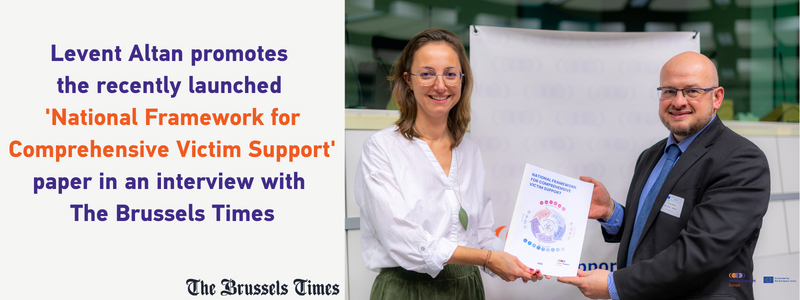R.B. v Estonia: adapting procedural rules to children’s vulnerability and needs
Earlier in 2021, the European Court of Human Rights (ECtHR) investigated the failure of Estonian judicial authorities to protect a child – a four year old Estonian girl (known by her initials as R.B.), who was a victim of paternal sexual abuse – during court proceedings.
Background
R.B. is the daughter of divorced parents, who separated in 2010 when she was three years old. The girl continued to live with her mother, but also met occasionally with her father, as per the parents’ separation agreement. R’s mother became suspicious of the father’s behaviour when the girl complained about pain in her private areas and, later, when she noted changes in her daughter’s behaviour on returning from visiting her father. When questioned, R.B. revealed she had been victim of child sexual abuse.
In 2012, R.B.’s mother reported the crime to the police, and the girl was interviewed by a senior investigator from the child protection services, in the presence of a psychologist and her mother. Criminal proceedings were opened against the father.
In 2014, the court convicted the father, as charged, and sentenced him to imprisonment for six years, as R.B.’s testimony was confirmed by expert opinions, witnesses and her mother. The father contested the conviction on the grounds that legal procedures had not been followed; this included the failure, by the investigating authorities, to inform the four-year-old child of her right not to testify against her parent, and of her obligation to tell the truth. The appeal further contested the reliability of the child’s testimony, which might have been influenced by the mother’s presence during questioning, as well as the validity of the testimonies provided by the mother and other witnesses, who had not directly witnessed the abuse. The Supreme Court accepted these arguments, excluded the victim’s, and her mother’s, testimony and acquitted the father based on procedural grounds.
The Court’s findings
The ECtHR had previously emphasised the State’s obligation to adopt procedural rules that guarantee that a child can testify against the crime they suffered and that, in order to respect the prohibition of torture, cruel, inhuman and degrading treatment and punishment (Article 3 of the ECHR) and protect the individual’s right to respect for private and family life (Article 8 of the ECHR), all States are required to effectively investigate and prosecute allegations of child sexual abuse; taking into account the child’s vulnerability, dignity and rights both as a child and as a victim.
To ensure the effective protection of children’s rights in line with international standards, the ECtHR therefore considers that it is essential to safeguard children’s safety both before and during a trial. Here, it notes that, within the Estonian legal framework, the general rules for questioning witnesses are also applicable to children, but without providing any exception or adaptation for under-age witnesses. If, in practice, it has been recognised that their age and level of understanding must be considered, the applicant’s testimony was excluded because of a strict application of the procedural rules.
In this context, the Court considers that the authorities’ procedural response to the allegations of rape and child sexual abuse did not sufficiently take into account the applicant’s particular vulnerability and needs as to provide her sufficient protection. Therefore, the judgment of the Estonian Supreme Court subjected this young victim to inhumane and degrading treatment, through the failure to give her an opportunity to be heard and be recognised, and it also failed in its obligation to protect her right to privacy.
——
As in the case of X and others v Bulgaria (see our summary in VSE website and intranet), this judgment is a reminder that when there are allegations of child sexual abuse, all Member States are required to correctly investigate the case to ensure the victims are given the respect and recognition they deserve. In R.B.’s case, however, the ECtHR insists on the importance of following child-friendly rules and practices, during both the investigations and the criminal proceedings.
Advocating for the establishment of child-friendly justice systems in all EU Member States is one of Victim Support Europe’s priorities: all justice systems must be accessible and adapted to, and focused on, the rights and needs of the child, both in legislation and in practice. Rules and practices should be age appropriate, while respecting the privacy, integrity and dignity of the child.
For more information on child victimisation and child sexual abuse, please visit our webpage: Help for Victims – Info for Victims on Child Victimisation.
Access R.B. v Estonia, full judgment, here: https://hudoc.echr.coe.int/eng#{%22itemid%22:[%22001-210466%22]}
Do not hesitate to comment and share your experience on child-friendly procedural rules in your Member State! Are procedural rules adapted to children – in law and/or in practice?
Recommend0 recommendationsPublished in Uncategorised


